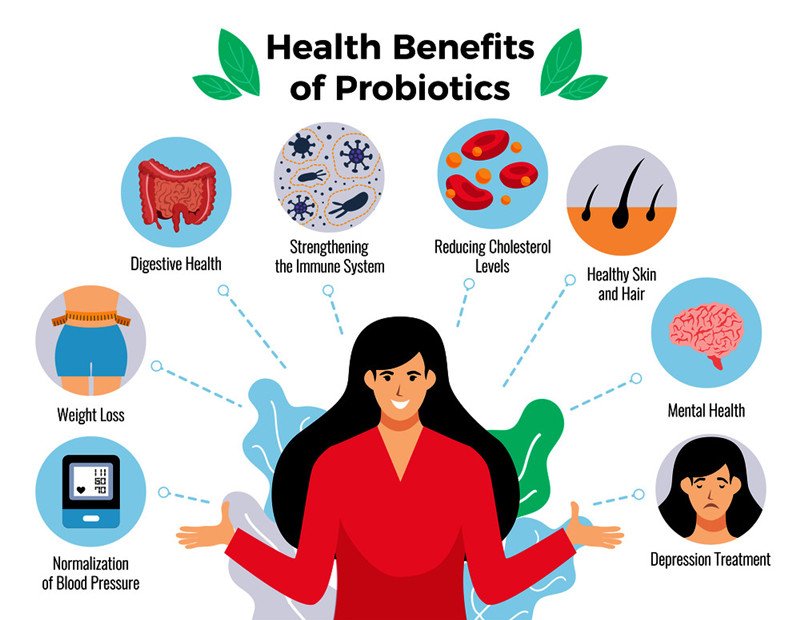Under the current situation of repeated global epidemics, what new consumption trends will appear in the food and beverage market in 2022? Which areas will be profitable? Recently, ADM released its second annual global consumer trends report, pointing out the eight key consumer trends driving current and future global growth.
1 Mental health is the key
Although mental health is a long-term trend, the repeated epidemics have prompted people to pay more attention to mental health. Many people are looking for more effective ways to deal with stress and anxiety. According to a survey by ADM Outdoor Voice, 37% of global consumers expect their snacks to improve their mental health. In addition, according to research by Innova Market Insights, brain and emotional health claims account for the largest proportion of plant and herbal food supplements launched in the North American market and are growing rapidly.

Among the anti-stress raw materials, Ashwagandha has the fastest sales growth in North America. In 2020, its sales in mainstream retail channels increased by 185.2% to US$31,742,304. In 2018, Ashwagandha appeared in the 40 best-selling herbs in mainstream retail for the first time, ranking 34th at that time. As consumers become more and more familiar with this herb, Ashwagandha has begun to grow rapidly. As an Ayurvedic herbal ingredient, it has the potential to surpass turmeric. Ashwagandha’s most well-known function is as an “adaptogen” to enhance the body’s ability to adapt to stress. His active ingredient-solanolactone, similar to plant sterols, can protect the human body from the negative effects of stress. It can help the adrenal glands and nervous system and reduce the discomfort caused by stress.
Smpl launched a series of nutritional bars, made of adaptogen herbal ingredients, designed to improve energy, focus, reduce stress and support the immune system. Among them, Calm Bar adds magnesium, Ashwagandha and lemon balm extract, and coconut oil to help clear the mind and reduce anxiety.
2 Plant-based lifestyle
As consumers seek functional and healthy plant-based nutrients to support a healthy and environmentally friendly lifestyle, flexible plant-based diets have become mainstream. ADM analysis predicts that by 2035, plant alternative proteins are likely to account for 11% of the total protein market. This is partly driven by COVID-19, which has accelerated people’s interest in plant-based products.
However, it should also be noted that compared with animal protein, vegetable protein has certain defects in taste, nutrition, and texture. Therefore, major companies are also working on researching and developing various original ingredients applied to plant-based products. Solve these problems well.
DSM launched CanolaPro, a functional plant protein isolate last month, which will segment the plant-based market in the sports nutrition field to cater to different consumer groups. CanolaPro is derived from non-GMO rape, not only can provide high digestibility and complete amino acid profile, but also high solubility, and can provide a smooth taste under the condition of high inclusion rate.
Fiberstar launched Citri-Fi TX textured citrus fiber, a non-GMO recycled fiber derived from citrus fruits, aimed at improving the taste and texture of plant-based meat substitutes. It can open the fiber to produce a high surface area, help maintain the fiber’s high water holding capacity and emulsification, and can be used in various plant-based alternative products.
3 The gut microbiome is the source of health
People have gradually realized that the microbiome is the core of health. ADM data shows that 58% of global consumers are aware that beneficial bacteria in the digestive system may bring potential benefits to their overall health. This trend has led to a surge in the number of foods, beverages, and supplements that support gut health to promote overall health.
Of course, there are differences in the efficacy of different probiotic strains, and there are also differences in the structure of individual intestinal flora. If the supplement lacks pertinence, it will not be able to achieve the desired effect. It is more reasonable to find out which probiotics you are lacking through intestinal flora testing, and then make targeted supplements. Therefore, the way consumers seek intestinal health is evolving from passive (looking for food to alleviate intestinal discomfort) to active (tailored probiotics, prebiotics, and epibiotic solutions).
In the field of personalized probiotics, Sun Genomics of the United States successfully launched the commercial product Flore. This is a set of personalized probiotic solutions, including two patented steps. It combines DNA sequencing technology and the manufacturing technology of customized personalized probiotic products to provide consumers with personalized probiotic products in 90 days to solve consumers’ specific intestinal health problems.

4 Clean labels and transparent procurement
Consumers’ demand for “clean label” products is very obvious, and they believe that these products should be composed of real kitchen-grade ingredients. This has also led to the need for transparency throughout the product life cycle (from manufacturing methods to packaging methods). 58% of global consumers said that due to COVID-19, they will pay more attention to product origin declarations. Advances in artificial intelligence, blockchain, robotics, and the Internet of Things will raise the threshold of digital traceability solutions, such as smart labels and digital traceability.
Ipsos 2021 Food and Beverage New Trend Insights also pointed out that in the post-epidemic era, consumers pay more attention to food safety issues. 78% of consumers said they attach great importance to ingredient lists. Families with children born in the 80s are particularly concerned about the traceability of food and beverage ingredients. Up to 93% of parents with children born in the 80s believe that the traceability of products can increase their purchasing intentions. To make consumers buy more assured, the product traceability QR code is shown on the packaging, and the supply chain is fully transparent, which can greatly increase consumers’ purchasing intention.
Jane Eyre launched a new naked fresh milk. The product uses 100% raw milk as the raw material and contains calcium, protein, immunoglobulin, lactoferrin, and other nutrients. It also uses a 75 ℃ pasteurization process, and the product’s protein content, somatic cells, and colony counts, and other key indicators exceed EU standards. In addition, Jane Eyre has reached strategic cooperation with SGS, a world-renowned testing organization, insisting on 111 milk source testing that meets EU standards every day, and supporting scan code traceability.
5 Humanized pet care
Pets have been regarded as part of the family. Although this trend has always existed, it has intensified during the COVID-19 pandemic. Many pet families transfer their purchasing values and preferences to their pets, seeking organic, natural, clean label, sustainable, and functional pet food. The global launch of “all-natural” pet food increased by 41%. ADM Outdoor Voice also found that 30% of pet owners around the world spent a lot of time in the last year researching how to help their pets make the best food choices.
Pup-PIE vegetarian pet cake, without dairy products, soy, wheat, corn, purely handmade. The Dutch biotechnology company Veramaris recently launched a natural seaweed oil-based omega 3 fatty acid for pet food, called Veramaris Pets, which provides twice the DHA and EPA of fish oil. This proves the rising trend of high-quality pet ingredients.

6 Precise and responsible animal husbandry
In addition to the increasing demand for naturally positioned pet nutrition, the demand for optimized feed solutions is also increasing. These solutions can better support human nutrition and also take into account environmental protection. This prompted brands to start providing information to explain how animals are raised, especially for antibiotics and growth hormones. According to ADM, nearly half (49%) of consumers are willing to pay a premium for animal products with high-quality assurance and verifiable safety standards.
Caulipower introduces crispy-skinned chicken with salty and sweet potatoes. The product uses high-quality non-caged chicken provided by NakedTruth, without antibiotics, and is made by coating the chicken with sweet potatoes, rice noodles, garlic, onions, rosemary, and sage. Every two slices of Caulipower Sweet Potato Crispy Chicken contains 120 calories, 13 grams of protein, 1.5 grams of fat, and 1 gram of sugar, which is 85% less fat and 39% calories than traditional tender chicken.
7 Sustainability
Consumers have regarded sustainability as an ethical requirement and have linked sustainability with social ethics, community, and environmental issues. 47% of global consumers said they are now more concerned about sustainability claims. This has triggered a demand for ethical production and sustainable procurement. Such as renewable agriculture and carbon negative emissions to protect the sustainable supply of food in the future.
Snack futures, the innovation center of Mondelez International, created a new biscuit brand NoCOe. The brand focuses on carbon neutrality, starting from the supply of raw materials, to manufacturing, storage, transportation, shelf, and reaching consumers, fully calculating and taking into account the reduction of carbon emissions. It chose cardboard packaging with biodegradable film and planted trees to offset carbon emissions.
8 Advanced renewable energy and biological solutions
Consumers are now more concerned about their consumption and the impact of the entire food supply chain on the environment, with particular attention to the use of limited materials and waste. ADM pointed out that 38% of consumers worldwide are willing to pay more for products made from sustainable materials, and the use of recycled waste for food processing is increasingly being used as a way to meet this demand.
Tropical fruit processor Frutco has collaborated with plant ingredient supplier Fooditive to launch a new sweetener product based on banana peel waste in Europe to reduce food waste. The product will be positioned as a sustainable sweetener, which will help eliminate carbon emissions in the supply chain while being natural and healthy. It is a 100% sugar substitute and can be used in many products such as chocolate, dairy products, and beverages.

